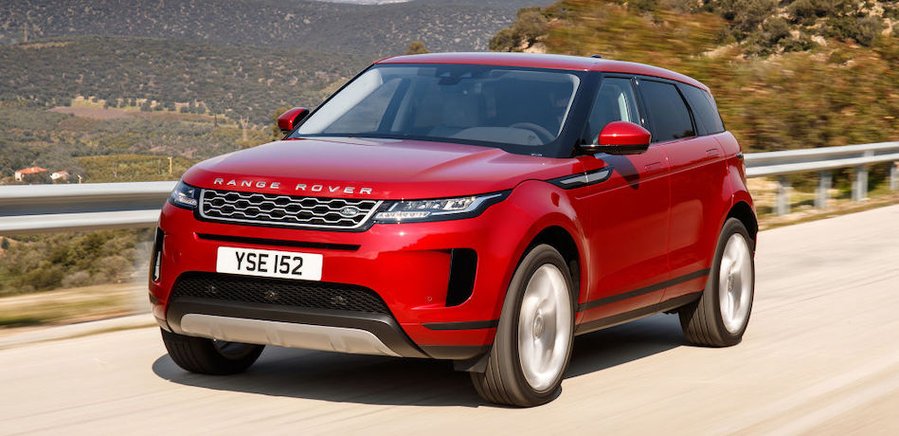Jaguar-Land Rover rules out downsizing into new segments

Jaguar-Land Rover (JLR) will continue expanding its portfolio of models during the 2020s, but the group confirmed it won't chase volume by branching out into smaller segments like its German rivals. The two brands will instead seek partnerships to generate economies of scale.
"We should not and will not drive down into segments just to get economies of scale," said Felix Bräutigam, Jaguar-Land Rover's chief commercial officer, in an interview with Autocar.
He added the second-generation Range Rover Evoque (pictured) released in 2018 is already a relatively small car. It stretches 172 inches from bumper to bumper and 75 inches from side to side, so it's approximately 4 inches longer and 5 inches wider than the eighth-generation Volkswagen Golf. It's about 8 inches taller than the German hatchback, however. While that's small by luxury car standards, Mercedes-Benz and BMW respectively went smaller with their Smart and Mini brands. Audi doesn't have an entry-level sub-brand, but it doesn't need to because it's part of the gigantic Volkswagen Group. Japanese luxury firms like Lexus and Infiniti are also part of bigger companies.
Bräutigam's comments bury numerous rumors. They confirm Jaguar won't take on the Mercedes-Benz A-Class, the Audi A3, and the BMW 1 Series with a model positioned below the XE, which competes against the C-Class, the A4, and the 3 Series, respectively. They also douse cold water on the born-again Freelander (which ultimately morphed into the LR2 in America), which Land Rover was allegedly developing to slot directly below the aforementioned Evoque.
Ironically, JLR might soon have access to platforms capable of underpinning smaller vehicles. Parent company Tata Motors is actively looking for an outside company to link arms with the British brands, according to a separate report. Officials reportedly approached BMW -- which used to own Land Rover, and announced a joint-venture with the group in 2019 -- and Geely, the Chinese giant whose portfolio of brands includes Volvo, Polestar, Lotus, Proton, London Taxi Company, Terrafugia, and half of Smart, plus a sizeable, nearly-10% stake in Mercedes-Benz parent company Daimler.
Geely told Bloomberg it hasn't heard from Tata or JLR. BMW and Tata remained silent. While a partnership with someone looks likely considering the significant hurdles faced by JLR, its parent company has categorically ruled out selling the duo it purchased from Ford for $2.3 billion in 2008.
